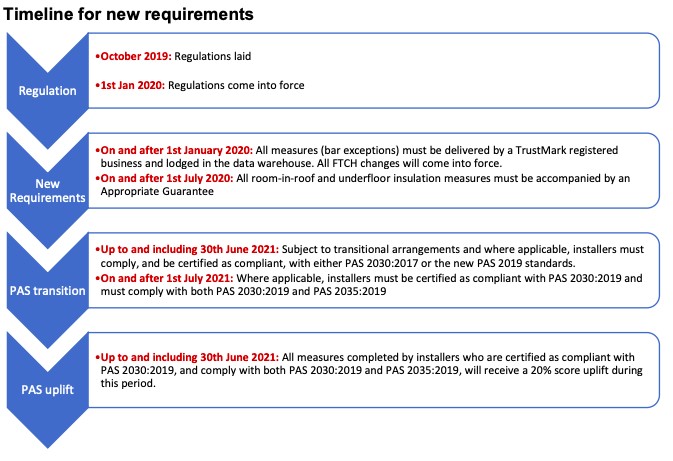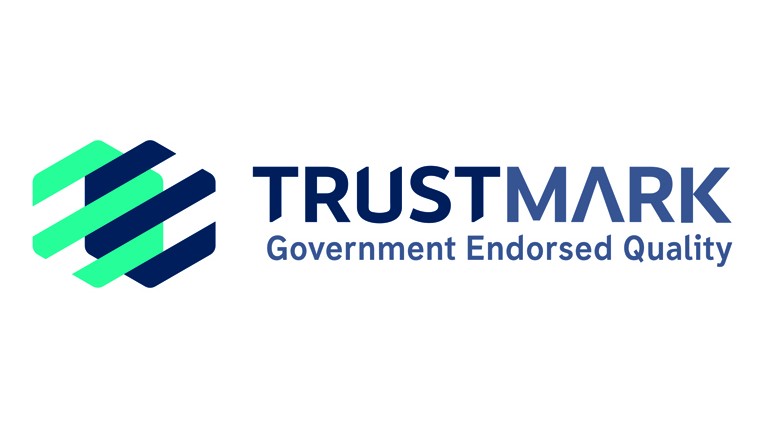BEIS publishes its response to the 'ECO3: Improving Consumer Protection' consultation
BEIS has published its eagerly awaited response to the ECO3: Improving Consumer Protection Consultation, detailing amendments to the scheme from 1st January 2020. This consultation focused on improving consumer protection standards with the introduction of Trustmark, a Government-endorsed quality scheme. On the whole, BEIS’s response is very positive and will hopefully lead to higher standard of measures installed under ECO3. We understand that the regulations are likely to be laid before parliament this week and come in to force from 1st January 2020. Government has published the following timeline of the proposed amendments:

Here are our key take-aways from the final consultation outcome. You can also read our initial briefing on the consultation itself here.
- Introduction of new standards: all changes are likely to be rolled out from 1st January 2020
- Trustmark: the government endorsed scheme will be included within the ECO scheme and all partners must register by 1st January 2020
- New PAS standards (PAS2030:2019 & PAS2035): new PAS standards will be incorporated into ECO3 and all supply chain members must transition by 30th June 2021. This extension on the initial proposed transition period is in response to concerns relating to the implementation and roll out of the new standards.
- 20% uplift on measures installed under the new standards: Early adopters of the new PAS standards will receive a 20% uplift on measures installed from 1stJanuary 2020 until the end of transition period, 30th June 2021.
- Trustmark guarantee requirements: Trustmark will introduce a 2 year minimum guarantee requirement on all ECO measures. Further detail can be found within their operating framework.
- Room in Roof and Underfloor Insulation: due to the complex nature of these measures, a 25 year guarantee will be required on all installations from 1st July 2020. Government recognises that it must allow sufficient time for providers to make suitable guarantees available.
- Broken Boiler uplift: Government has decided to retain an uplift for broken boiler replacements outside of the broken heating systems cap, however they have reduced this from 400% to 200%. Upon reflection, this is very positive when compared with the initial policy intent. Whilst this may affect the trend in the uptake of dual measures which encouraged a whole house approach, we expect to see an increased level of delivery prior to the regulatory amendments.
- First Time Central Heating: there are several positive amendments here:
- FTCH is now eligible within Private Rented Sector with an EPC rating of F & G. Government has aligned this measure type with their policy rationale on other high cost measures such as SWI and renewable heating, which is already eligible within PRS F&G.
- Increased lifetime: this has been increased to 20 years which will provide a further uplift on current deemed scores
- Promoting low cost insulation: A new requirement will be introduced for FTCH to be installed, cavity wall and roof insulation must be installed unless it is already present prior to the installation of FTCH.
